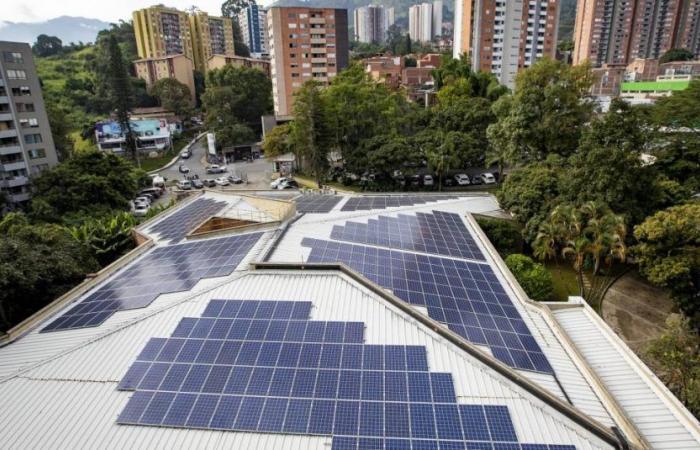
02:19 PM
Colombia positioned itself as the fifth country in Latin America, after Brazil, Chile, Costa Rica and Uruguay, that has made the most progress in terms of energy transition. He also held the 35th place worldwide, with an improvement compared to 2023, when it was ranked 39th in the world and 6th at a regional level.
However, The country continues to lag behind the good results it obtained in 2021, when it was ranked 3rd regionally and 29th globally.
You can read: Could Medellín convert its garbage dump into an energy generation plant that makes it billable?
This was revealed by the Global ETI Index (The Energy Transition Index) of the World Economic Forum (WEF), which Every year it measures the performance of the energy system of 120 countries in terms of equity, sustainability and security, and preparing an enabling environment in terms of policies and regulatory framework, infrastructure, innovation, education, human capital, finance and investment.
The most notable
The 10 best-ranked countries in the ETI are advanced economies, mainly from northern Europe. Together, these contribute only 1% of energy-related CO2 emissions, 3% of total supply and represent 2% of the world’s population.
Sweden leads the ranking, followed by Denmark and Finland. Norway, however, saw a drop in its ETI ranking for the first time in many years, due to rising electricity prices and a decline in renewable capacity development.
Find out: EPM’s first solar park with 200,000 panels came into operation
In particular, six G20 economies in ETI top 20including France, Germany, Brazil, China, the United Kingdom and the United States.
As to Latin America and the Caribbean, the organization noted that the region has experienced the slowest growth, with ETI scores increasing only 3% over the last decade.
Read also: If the 66 planned renewable projects come in this year, a city like Bogotá could be illuminated
“Despite leading the sustainability dimension, largely due to reliance on hydropower and recent expansions in solar and wind capacity, The region surprisingly saw a 70% decline in renewable energy investment over the same period. In addition, education, human capital and innovation experienced declines of 5% and 9%, respectively, during the last decade,” he indicated.
In this way, the study reported that Of 120 countries, 107 have shown progress over the last decade. In particular, China and Brazil have made progress in recent years, mainly due to an increase in renewable energy capacity.
The delays
For the WEF, although more and more countries are advancing in the adoption of renewable sources and low-carbon fuels, The pace has slowed and progress has been uneven, in part due to growing uncertainties in the global outlook.
You may be interested in: Environmental license approved for the fundamental Colectora project in La Guajira
According to the organization, Global investment in clean energy has increased by 40% since 2020, but this growth has been mainly concentrated in advanced economies.
Instead, he said, other emerging and developing economies have received less than 15% of total investment despite representing 65% of the world’s population and generate around a third of the world’s gross domestic product (GDP).
“This disparity highlights a worrying trend in energy transition financing in emerging and developing economies. To align with efforts to limit global warming to 1.5°C, Clean energy investment in these economies outside China must increase more than six-fold, going from $270 billion today to $1.6 trillion by the 2030s.”
Finally, he highlighted that in a global panorama marked by complexities and uncertainties, more decisive actions are needed by governments, with political approaches adapted to local priorities and challenges.
In this sense, he recommended that countries take a series of measures: implement regulations to advance decarbonization; achieve energy equity for vulnerable households; increase investments in infrastructure; invest in energy efficiency solutions (governments must prioritize private sector investments and encourage energy savings); enhance network capabilities and collaboration across sectors and nations; lower intensity of fossil fuel emissions; promote R&D and new technologies; and prioritize the development of a qualified workforce.

